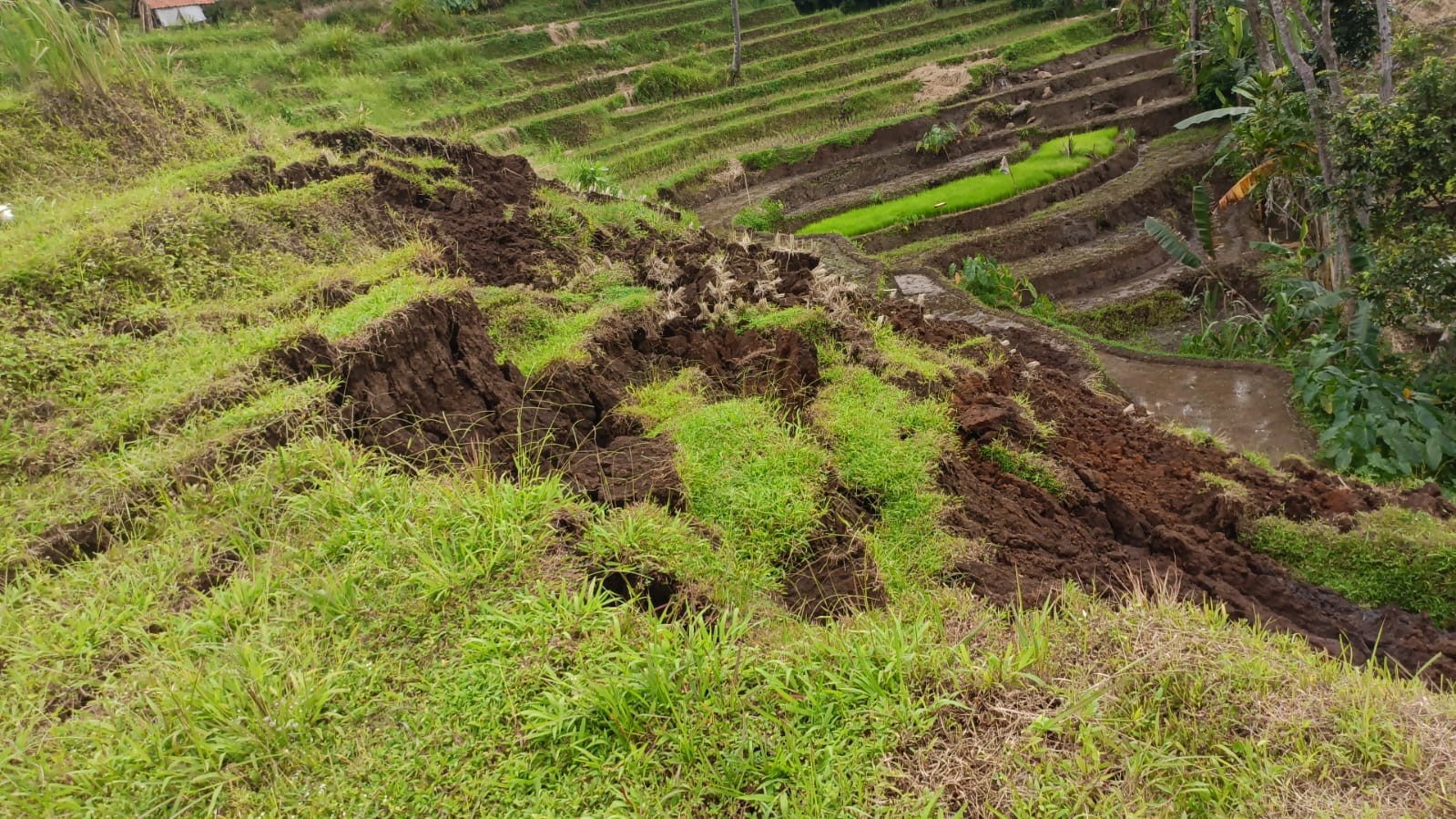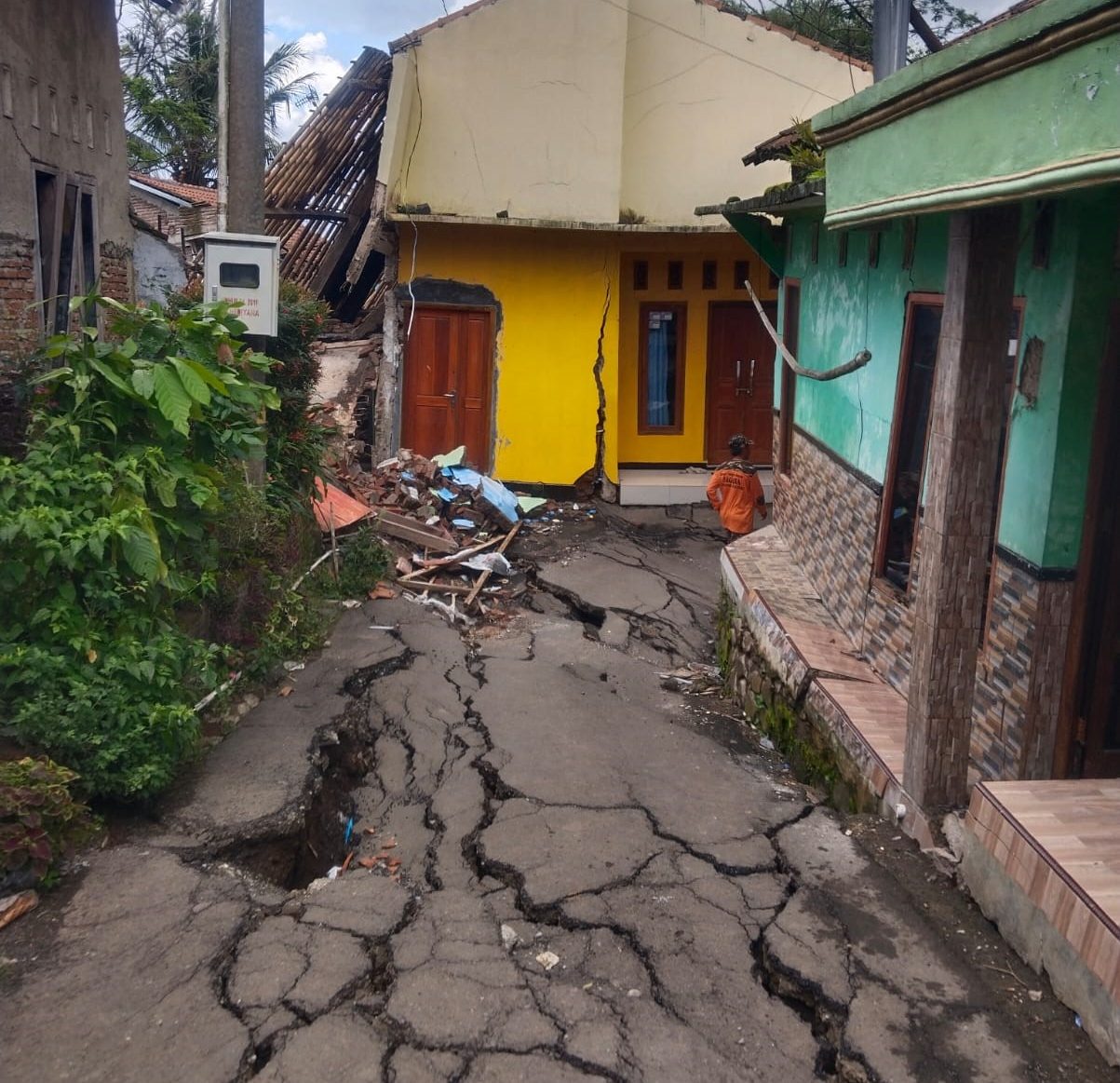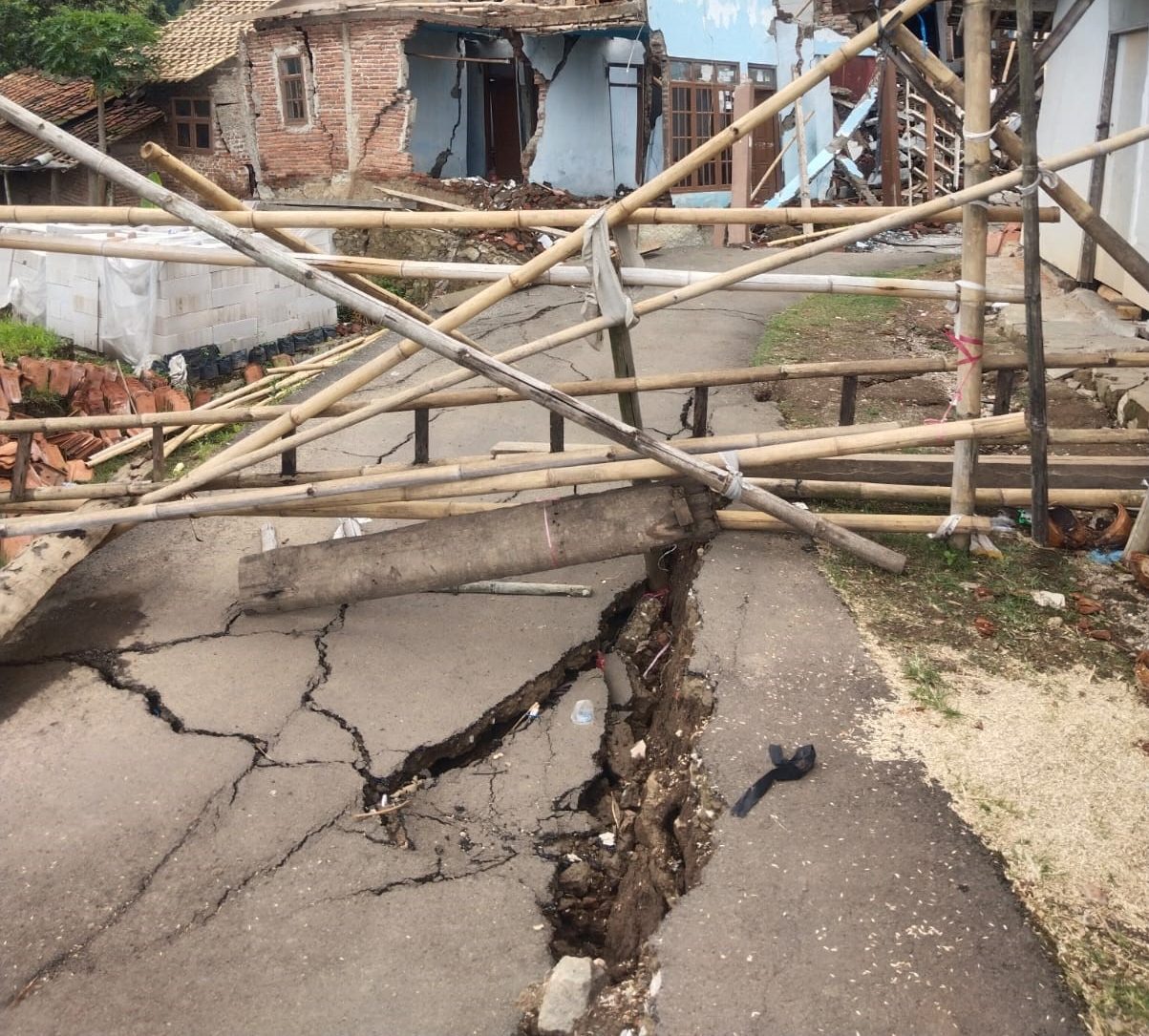The Geophysics Team of the Faculty of Science and Mathematics, Diponegoro University (FSM UNDIP), conducted a study on land movement in Mendala Village, Sirampog District, Brebes Regency. Based on the results, Babakan Hamlet and Cupang Bungar Hamlet were declared not recommended for settlement due to thick sediment layers and a high degree of soil deformation.
The Head of the Geophysics Team of FSM UNDIP, Prof. Dr. Gatot Yuliyanto, M.Si., explained that the research aimed to identify subsurface conditions in the areas affected by land movement, while also assisting in the preparation of potential permanent housing sites for displaced residents. This activity was supported by D-DART UNDIP and the Regional Disaster Management Agency (BPBD) of Brebes Regency.
“Our survey was conducted in two stages using the microtremor method. The first stage was to map subsurface conditions, particularly in the affected areas, while the second stage focused on potential permanent housing locations,” said Prof. Gatot.

In the first stage, surveys were carried out at 49 points in the affected areas, while in the potential permanent housing site in Mongkrang (west of the Gunung Poh Evacuation Post), measurements were conducted at 35 points. The findings indicated that most of Mendala Village—particularly Krajan, Babakan, Cupang Bungar, and northern Karanganyar—was dominated by soft to hard soil layers, with some locations consisting of rock layers with relatively low hardness.
Prof. Gatot added that the soil layers in Babakan Hamlet are thicker compared to Cupang Bungar Hamlet. Meanwhile, parts of Krajan Hamlet and Karanganyar Hamlet are still considered feasible for settlement, although further investigation with denser measurement points is required to obtain a more detailed profile of the soil’s dynamic properties.

The results of this study are expected to serve as scientific recommendations for local governments in taking disaster mitigation measures and determining safe settlement locations for communities affected by land movement in Brebes. As part of its commitment to the Tri Dharma of Higher Education, FSM UNDIP continues to support research that provides direct benefits to society and local governments, while striving to make tangible contributions in the fields of disaster and environmental studies, in line with the university’s vision to become a world-class institution actively engaged in sustainable development.

